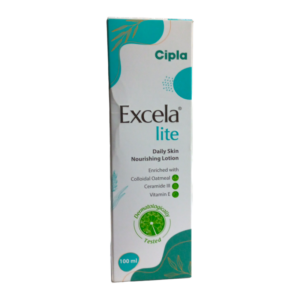VITAMIN E + COLLOIDAL OATMEAL + CERAMIDE III
Vitamin E: Vitamin E, also known as alpha-tocopherol, is a fat-soluble vitamin that is essential for the proper functioning of the body. It is found naturally in various foods, including nuts, seeds, vegetable oils, and leafy green vegetables. Vitamin E is also available as a dietary supplement.
Use:
Vitamin E is primarily used as a dietary supplement to address a deficiency of this vitamin. It is also widely used for its potential antioxidant properties and its role in promoting overall health. Some people use vitamin E to reduce the risk of developing certain chronic diseases, such as heart disease, cancer, or age-related eye disorders. However, its effectiveness in preventing these conditions is still a subject of ongoing research.
Mechanism of Action:
As an antioxidant, vitamin E protects cells from damage caused by free radicals, which are highly reactive molecules that can harm cells and contribute to various diseases. By neutralizing these free radicals, vitamin E helps to reduce oxidative stress and inflammation in the body. It also plays a role in the immune function, gene expression, and acts as a blood thinner.
Dose:
The recommended daily allowance (RDA) for vitamin E varies depending on age, sex, and specific health conditions. For adults, the RDA ranges from 15 to 20 mg. Higher doses of vitamin E, up to 1,000 mg per day, may be prescribed in cases of vitamin E deficiency or as directed by a healthcare professional. It is important to follow the recommended dosage to avoid potential side effects.
Side Effects:
Vitamin E is generally considered safe when taken within the recommended dosage range. However, high doses of vitamin E can be associated with side effects such as nausea, diarrhea, stomach cramps, fatigue, headache, or dizziness. Long-term supplementation with high doses of vitamin E may also increase the risk of bleeding. Individuals on blood-thinning medications or with a bleeding disorder should exercise caution when taking high doses of vitamin E.
It is important to consult with a healthcare professional before starting any new supplements, including vitamin E, especially if you have any underlying health conditions or are taking other medications. They can provide personalized recommendations based on your specific needs and circumstances.
Colloidal Oatmeal: Colloidal Oatmeal is a natural ingredient used in the formulation of many skincare products, including creams, lotions, and bath products. It is primarily used to relieve and protect the skin from various conditions, including dryness, itching, eczema, and minor skin irritations.
The mechanism of action of Colloidal Oatmeal is multifactorial. It forms a protective barrier on the skin surface, helping to lock in moisture and prevent water loss, which can lead to dryness and irritation. It also has antioxidant and anti-inflammatory properties, which can help soothe and calm irritated skin. Additionally, Colloidal Oatmeal can help to repair the skin’s natural barrier function, improving overall skin health.
Colloidal Oatmeal is available in various forms such as powders, pastes, and baths. The recommended dose and usage depend on the specific product and the condition being treated. It is typically applied to the affected area of the skin or added to bathwater following the instructions provided by the manufacturer or healthcare professional.
Colloidal Oatmeal is generally considered safe for use with few reported side effects. However, some individuals may experience mild allergic reactions, such as skin rash or irritation. If any adverse reactions occur, it is recommended to discontinue use and consult a healthcare professional.
Overall, Colloidal Oatmeal is a popular choice for skincare due to its natural properties and its ability to soothe and protect the skin from various conditions. It is recommended to consult a healthcare professional or read the product labeling for specific usage instructions and precautions.
Ceramide Iii: Ceramide III, also known as Ceramide NP (N-stearoyl-sphinganine), is a synthetic form of a natural lipid molecule called ceramide. Ceramides are found in the skin’s outermost layer and play a crucial role in maintaining skin hydration and barrier function.
Ceramide III is commonly used in cosmetic and skincare products, specifically in moisturizers and anti-aging creams. It is also used in some dermatological products for the treatment of dry, sensitive, or damaged skin.
The primary mechanism of action of Ceramide III is its ability to enhance the skin barrier function. It helps to strengthen and restore the skin’s natural moisture barrier, which aids in preventing water loss and maintaining hydration. By improving skin barrier integrity, Ceramide III can help alleviate dryness, soothe irritated skin, and protect against external irritants.
The recommended dose and usage of Ceramide III may vary depending on the specific formulation and product. It is important to follow the instructions provided by the manufacturer or consult a dermatologist for proper usage.
As for side effects, Ceramide III is generally considered well-tolerated and safe for topical use. However, some individuals with sensitive skin may experience mild irritation or allergic reactions. It is always advisable to perform a patch test before using any new skincare product containing Ceramide III or consult a healthcare professional if you have any concerns or known allergies.
Overall, Ceramide III is a beneficial ingredient in skincare products as it helps improve skin hydration and barrier function, making it suitable for those with dry or sensitive skin.

